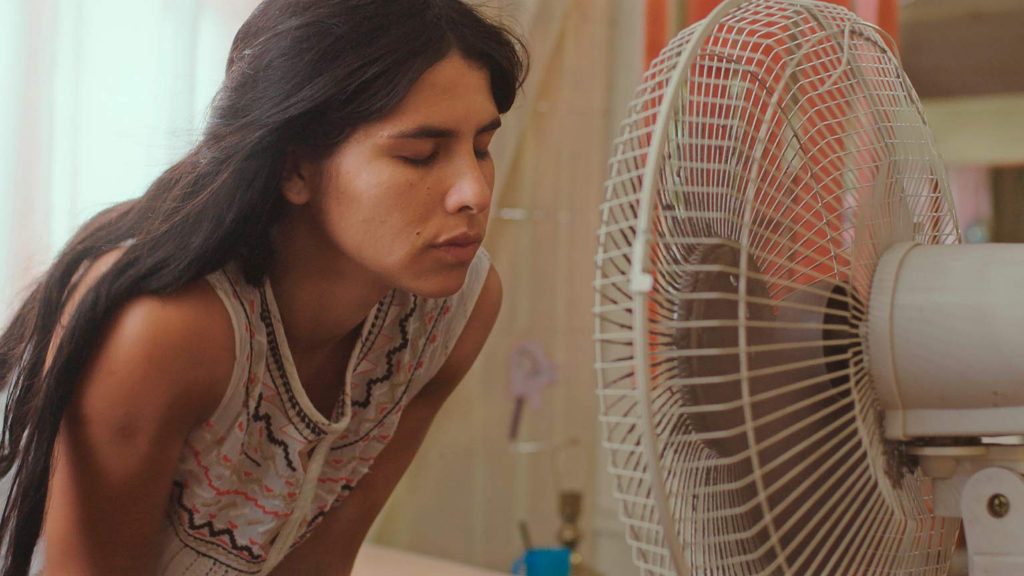Hormigas (El Despertar de las Hormigas)

In Hormigas (El Despertar de las Hormigas), director Antonella Sudasassi Furniss turns her focus on women living in the rural Costa Rican countryside. The filmmaker leads her audience on an exploration of society, family and female sexuality, presenting a beautifully intricate and yet recognisable story of growth and empowerment.
The narrative follows the frustrated Isabel (Daniella Valenciano) as she navigates the various expectations placed upon her womanhood. Under pressure from her husband and his family to provide a third child, the mother finds herself quietly and incrementally mounting a domestic and at times physical resistance. Valenciano’s performance as Isabel is affecting, not overblown but almost stoic, with a resolve which makes her protrayal all the more resonant.
The film’s title, which translates as “The Awakening of the Ants”, makes use of the insects as a simultaneously striking and skin-crawling metaphor for Isabel’s process of sexual exploration and self-discovery. Although the presence of ants in the film is undeniably powerful, it is also possible that they are not used to their full symbolic potential. They appear as signposts, rather than thematic interventions to be explored.
In the oppressive heat of a house populated mostly by Isabel and her two young daughters, the feature is vaguely reminiscent of Lorca’s La Casa de Bernarda Alba, which also centres on overheating and under-stimulated women. At many points in the film, Furniss chooses – quite spectacularly – to present the home as a gallery containing weapons of domesticity, which can pose a real threat to the feminine body. Long hair and household appliances seem to meet disagreeably.
The movie, rather than using a traditional soundtrack, is mostly quiet when it comes to music. This adds to Furniss’s cinematic claustrophobia. Musical interventions are incidental, and when they overspill, they are powerful and masterfully disorientating.
The audience sees much of Isabel’s torso, frequently truncated by the framing of shots which dismisses her head and legs. Only as the plot develops do we see different articulations of the protagonist’s body. This impressive and meaningful composition assists the film’s narrative, helping both Isabel and the viewer to see her as more than simply a womb-bearing torso.
Hormigas offers a lilting and at times jolting insight into a woman’s domestic life. Although it may appear that the rural Costa Rican setting speaks only to a unique set of experiences, Furniss achieves this specificity whilst also exploring widespread dynamics with a nuance and vision that will resonate with audiences the world over.
Fenja Akinde-Hummel
Hormigas (El Despertar de las Hormigas) does not have a UK release date yet.
Read more reviews from our Berlin Film Festival 2019 coverage here.
For further information about the event visit the Berlin Film Festival website here.
Watch the trailer for Hormigas (El Despertar de las Hormigas) here:
























Facebook
Twitter
Instagram
YouTube
RSS